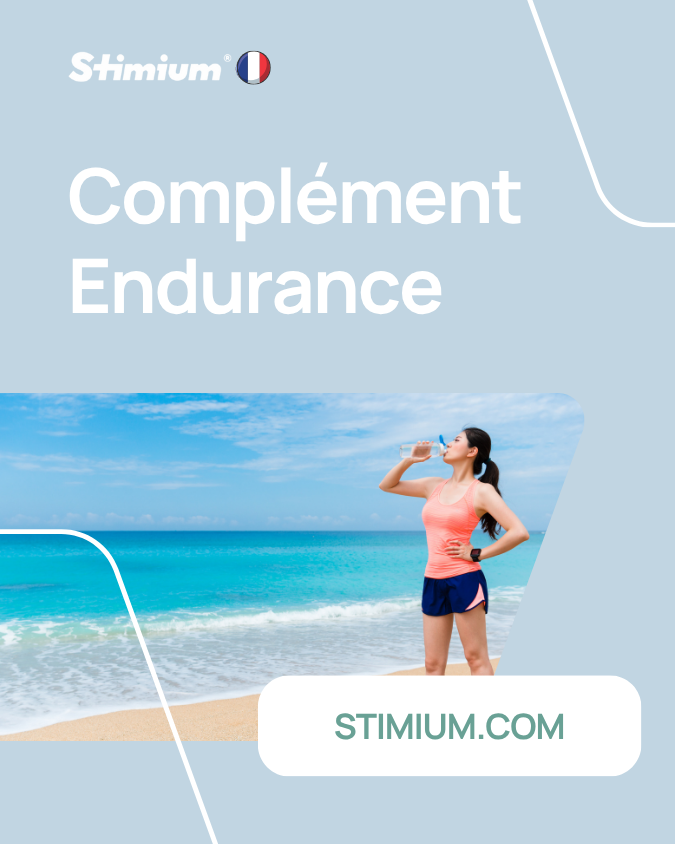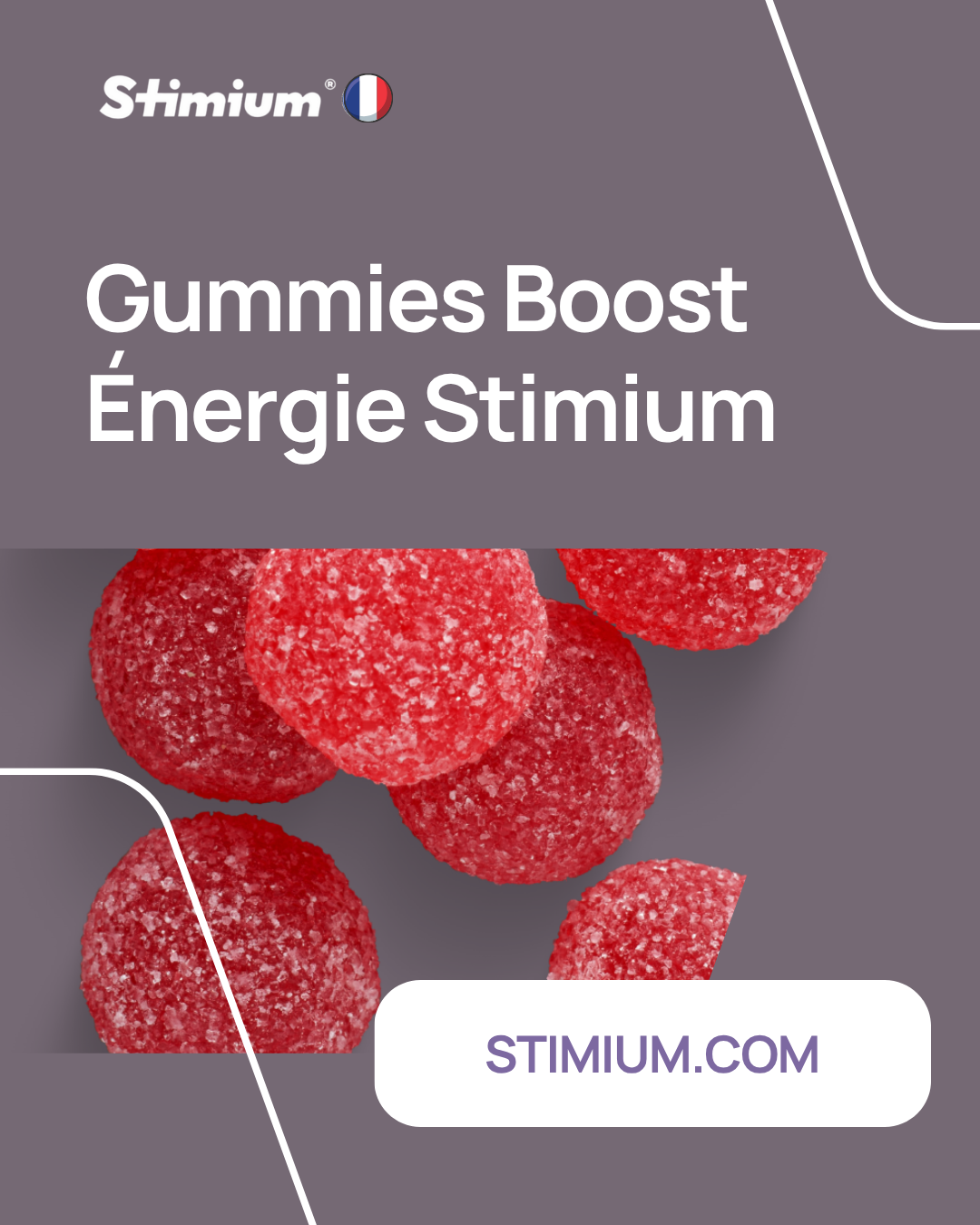No longer have a stomach ache
Athletes and sedentary alike, stomach aches are among the most common and least pleasant disorders to live with. Did you know that whatever the European countries, what is commonly called the “gastroenterology/digestive balance” category is systematically in the top 3 of the most sold products in pharmacies. This therefore means that it is an increasingly widespread problem, relating in particular to our lifestyles and our diet…but not only that!
For athletes, digestive problems during exercise are unfortunately known to everyone, and this is also one of the reasons which pushed us to take over STIMIUM , after having worked for a long time in the largest French pharmaceutical laboratory specializing in gastroenterology. Let's remember that practicing sports requires energy generated by our muscles based on signals sent by our brain. This necessary energy comes from the metabolism of carbohydrates, lipids and proteins. In endurance sports, therefore stretching over a certain period of time, the athlete will suffer losses of water, minerals (sodium, magnesium, potassium, etc.) and trace elements, evacuated by perspiration. The athlete must compensate for these losses with appropriate nutrition, before during, but also after exercise, while considering the impact of his nutrition on the digestive system. And considering that each athlete is different, with a different speed of digestion, a different loss of nutrients, a different metabolic reaction, this means that there are no miracle solutions but rather a clever mix of self-knowledge even for manage to find the right balance between nutrition and digestion.
During exercise, we often feel, after 1 hour or 1 hour 30 minutes of effort, intestinal pain, bloating, reflux (the famous GERD), or even vomiting or diarrhea. In ultra-endurance sports, even if we are targeting extremely well-trained athletes, it is estimated that 30 to 50% of ultra runners (trail, 100km, marathon, Ironman, etc.) suffer from various digestive disorders.
But then what are the causes of these gastric disorders? They are multiple, and specific to each individual:
It is difficult to classify but dehydration is one of the most common causes.
We find so-called mechanical causes - running a marathon means taking around 65,000 steps, which is as much rebound for the organs, vibration for the intestinal sphere, which obviously breaks with a daily routine of walking at 5,000 steps. Numerous studies have demonstrated the impact of shocks on tension in the digestive system.
Intestinal ischemia: During exercise, the blood flow at the intestinal level decreases mechanically, because it is redistributed at the muscular level for the direct needs linked to the sporting activity that we practice at that moment T, which creates an imbalance of oxygen for the digestive system which can result in abdominal pain (cramps), or even possibly diarrhea.
Intestinal permeability, that is to say the uncontrolled passage of substances (bacteria, toxins, etc.) across the intestinal barrier, increases during the practice of high-intensity sporting activity, again with quite significant consequences on the abdominal pain.
Overconsumption of certain foods also quite easily disrupts the balance of the digestive system. The most common example consists of overconsumption of carbohydrates by taking exercise drinks, hypertonic drinks or very sugary gels, which will create quite terrible stomach aches. This is one of the main reasons for the success of STIMIUM Gums, Stimium® Boost and Stimium® Pro-Nrj which replace gels rich in carbohydrates and caffeine, without having the side effects of stomach aches well known to sports practitioners. of endurance.
The lack of chewing of food ingested before and during training or a race is also a well-known cause, leading to problems with non-optimal digestion and assimilation. We have already described this topic here .
So how to stop having a stomach ache?
The key word is "balance" - even on an ultra trail, which is anything but a common activity, you must remain balanced in your nutrition, so that the body does not overheat.
-Always hydrate, but never by downing 1 liter at once, and always regularly, especially if this drink must be loaded with carbohydrates or other nutrients, in small sips ideally every 15 minutes.
- Do not take too many “solid” products to facilitate assimilation by the body – even if your homemade cake seems excellent to you, it will require more effort from your digestive system than a liquid or a good gum dosed.
- Limit the consumption of gels, prefer Stimium® Boost and Stimium® Pro-Nrj Gums in addition to an exercise drink such as Stimium Boost Powder or a recovery drink such as Stimium® Rgn3 Reload or Stimium® Rgn3 Clean- Up
- Some will also find it beneficial to practice rest or detox phases for the digestive system during the off-peak period of the year (December, January, February) with the taking of products such as Ginseng, like Stimium KG , or even of Stimium SPIRU spirulina, which also offer excellent nutritional profiles for athletes.
More than ever, the key to performing, continuing to improve and progress, is not single-factorial. Our body is so complex that for an athlete, the digestive system is a major element to take into account, just like his muscles, his head or his equipment. The digestive system will not necessarily make you win, but it can make the athlete lose. Like our muscles, we must therefore train our digestive system, take care of it, gently accustom it to small changes, if you want to make it evolve towards a new type of nutrition (for example Keto). Each athlete is different, the professional, like the amateur athlete - it's up to you to find the right balance, but respect the basics - limit carbohydrate intake, hydrate yourself, adapt your nutrition, and your digestive system has more chance to leave you alone!







